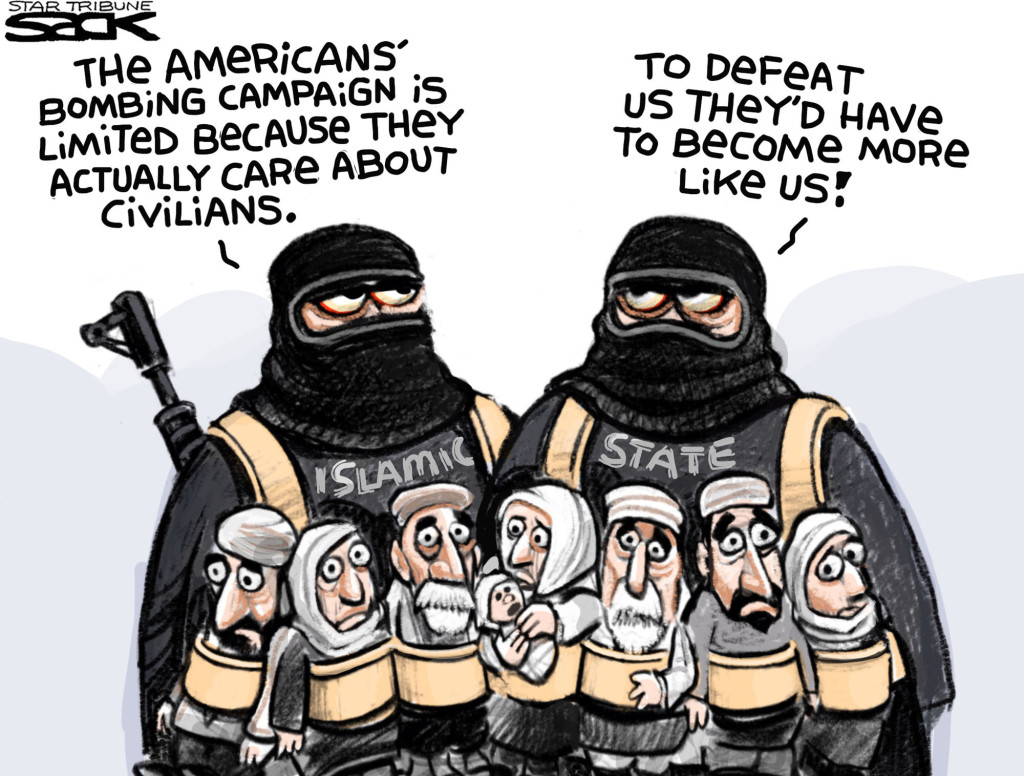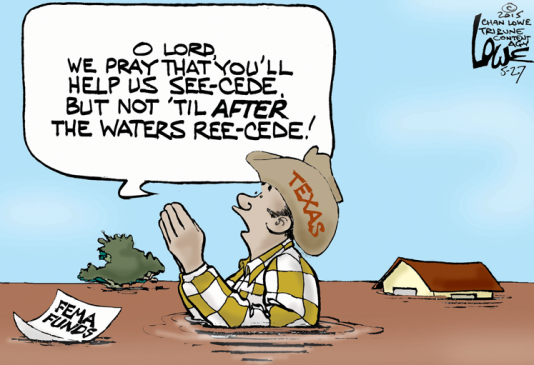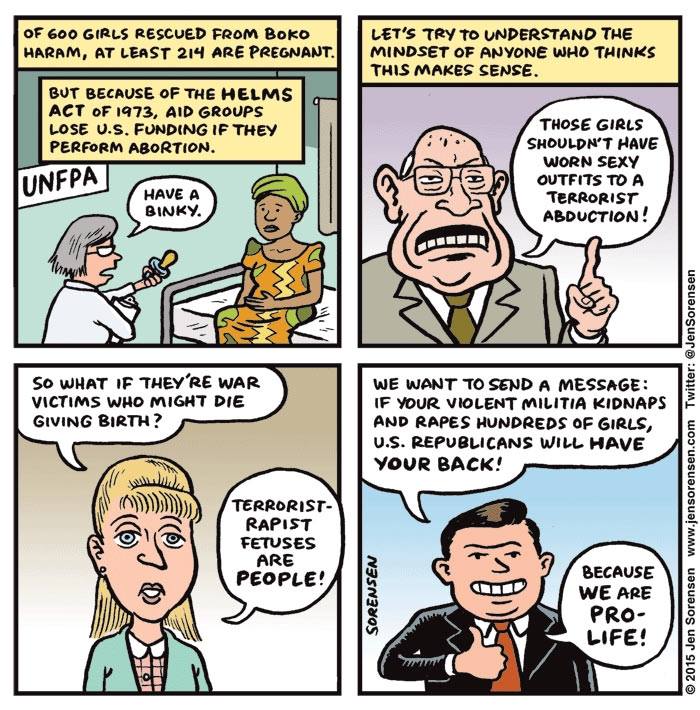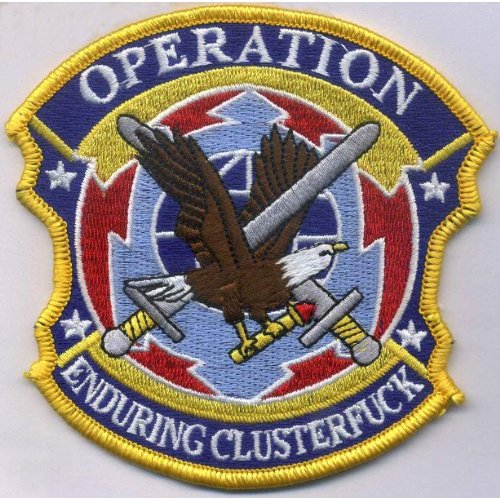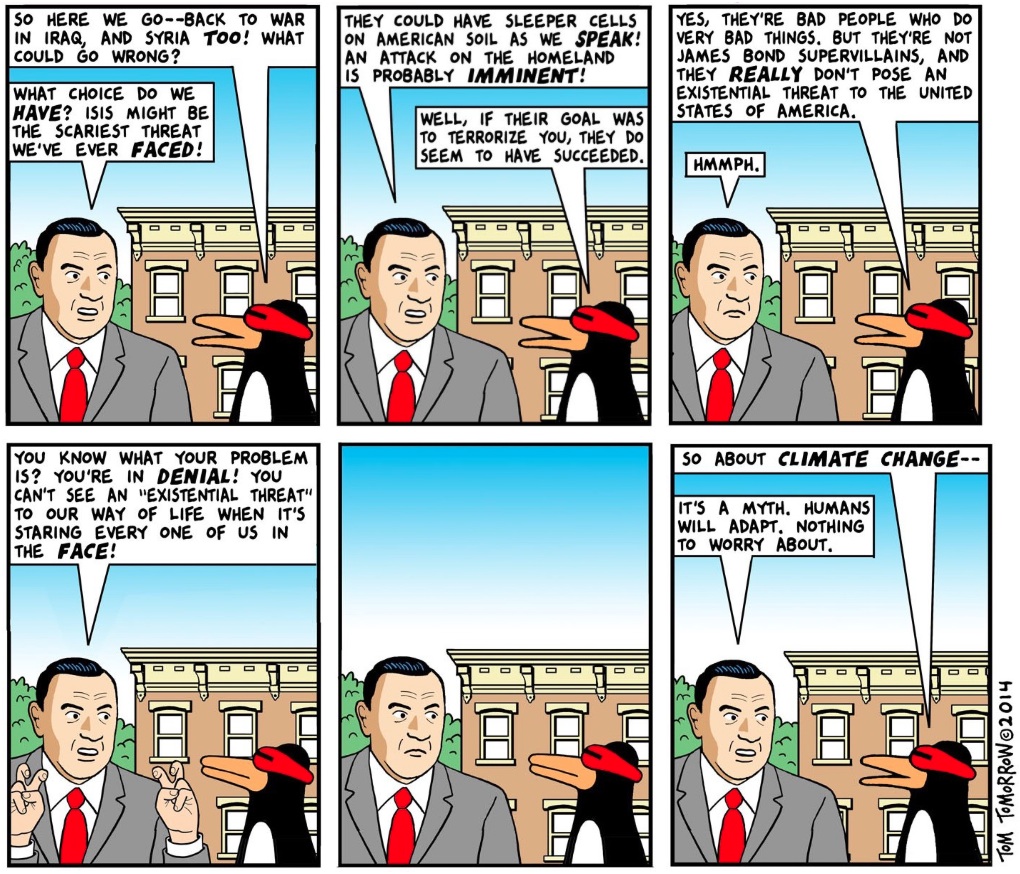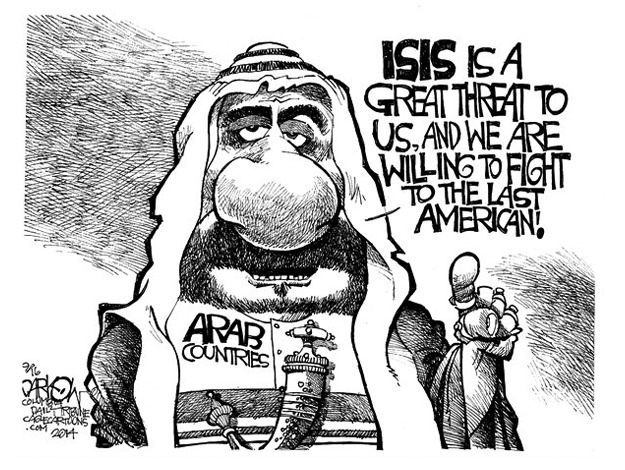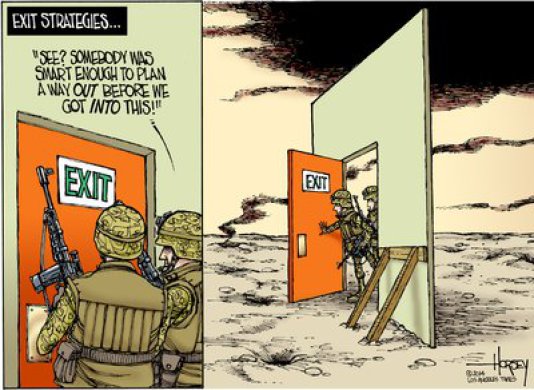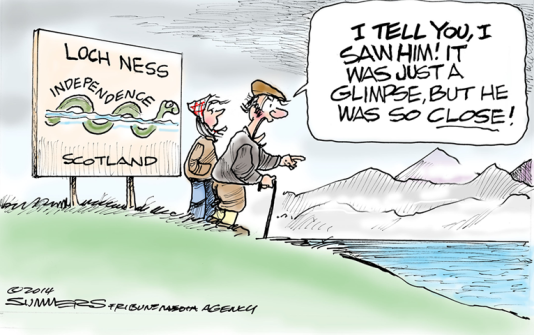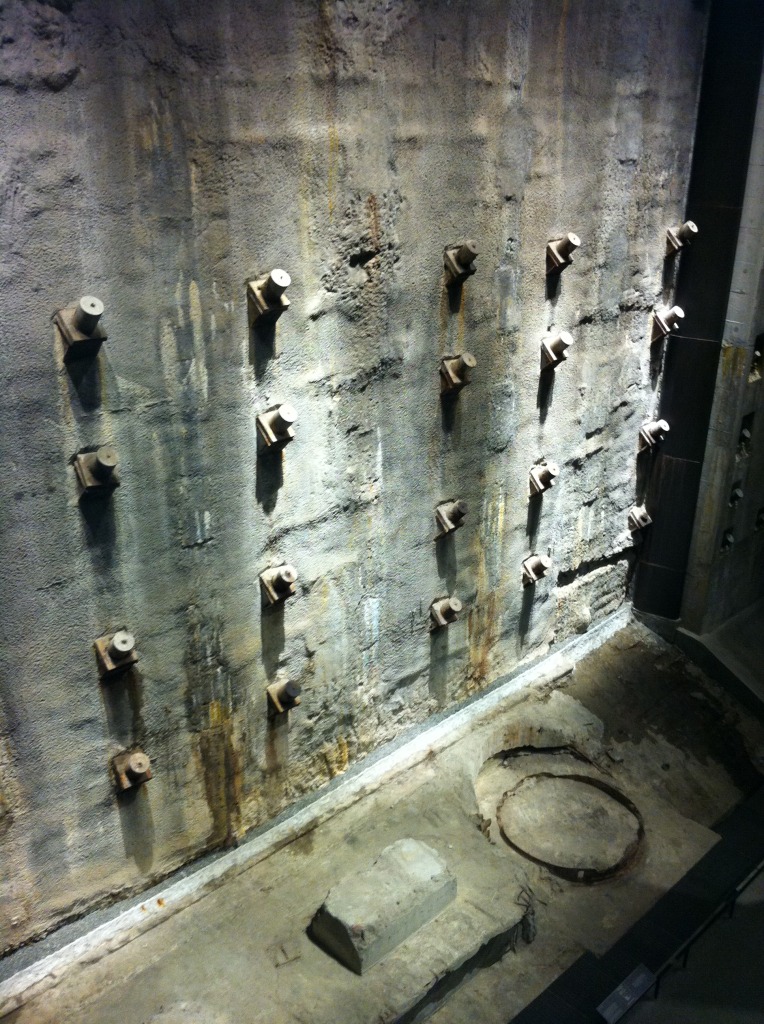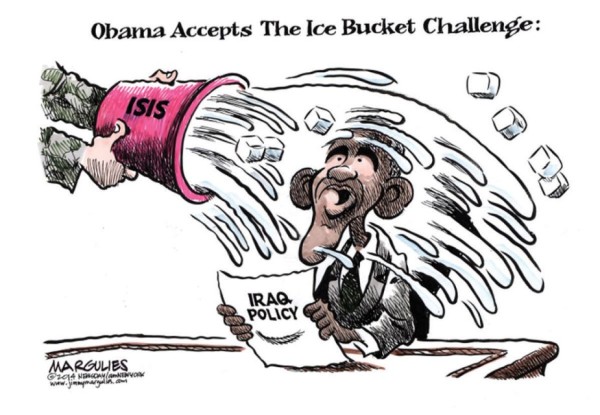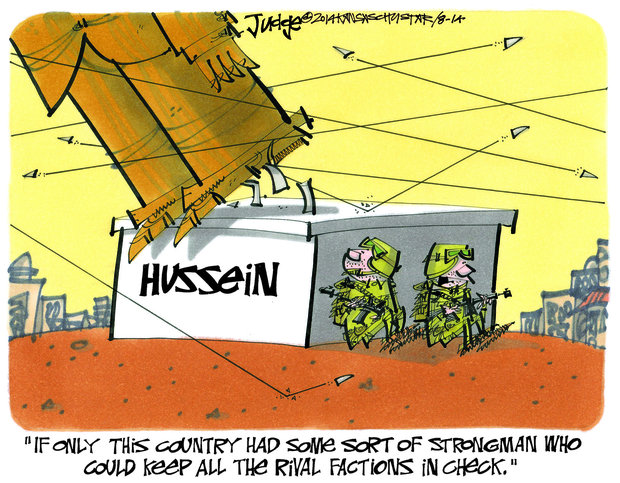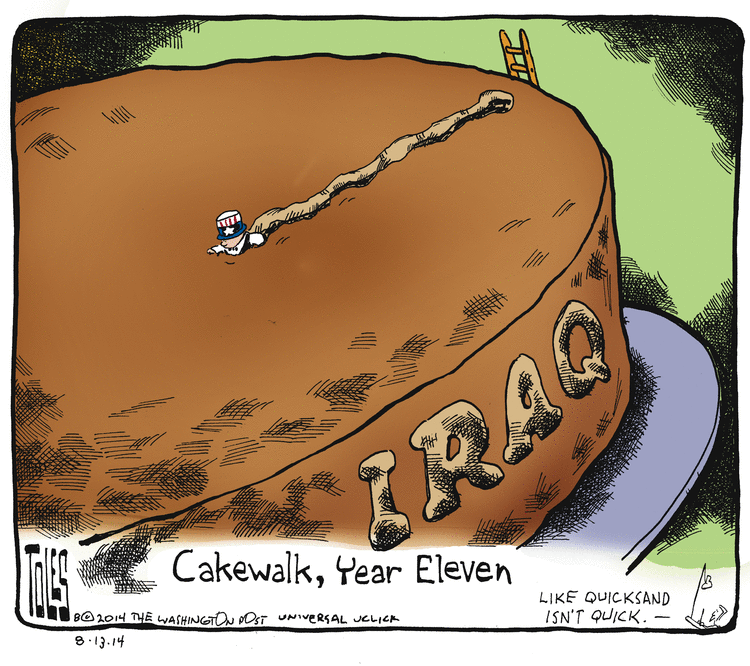We have solved nothing in 12 years in Iraq. As Tony Wikrent says at Naked Capitalism,
The sheer imbecility of American leaders is brought into glaring light [by] Bush’s attempt at the transformation of Iraq from among the Middle East’s most repressive states to a multiparty democracy.
As Col Lang says, we own it [Iraq], but cannot fix it.
So naturally, we will send more troops there in the next month or so. And to a new location. This will bring American troop levels to 3,500 since we left Iraq in 2011. The air base where the additional US forces are to deploy is al-Taqqadum, which sits about halfway between ISIS positions in Ramadi, about 40 kilometers (24 miles) to the west, and Fallujah, to the east.
Pat Lang reminds us that al-Taqqadum was originally a British air force base called RAF Habbaniya, which later became an Iraqi air force base. It had been abandoned for a long time when US forces occupied it in March, 2003. We initially called it Forward Operating Base (FOB) Ridgway before settling on the more Iraqi-friendly Camp Taqqadum in 2004. Pat Lang on our plans:
Former RAF Habbaniya was the center of the…British presence in Iraq. Look at the pictures of chapels, cemeteries, and swimming pools for the British troops… Habbaniya is the place we will defend and try to make Sunni tribesmen and Shia cowards into fighters? The omens for this are not good.
Think about it: It is an airfield we know well and maintained for years, but it’s only 24 miles from the ISIS lines. We are by design putting our newest effort right where the enemy could take out our planes and our soldiers. Makes you think that it is a trip wire of sorts, leading to a large re-deployment to Iraq when ISIS crosses our wire. We will have to fortify and defend this place very heavily. Otherwise, ISIS will see it as a place to engage us directly in battle.
Da Nang anybody?
The idea behind the new site is to provide greater support for Sunni tribal fighters, who have yet to receive all of the backing and arms promised by the Shiite-led government. But there may be a glitch. The Guardian quotes Mr. Obama at the close of the G7 summit, saying that there were not enough recruits to train:
We’ve got more training capacity than we’ve got recruits…It’s not happening as fast as it needs to.
The Guardian also quoted Hisham al-Hashimi, an Iraqi scholar and expert on ISIS that:
Only 1,100 Sunnis had taken part in the US training program, and none of them have graduated from it. In total, about 9,500 fighters have completed the training.
Washington wants to revive the “Sunni Awakening” strategy that we used in 2007 when large numbers of Sunni tribal fighters joined with US troops to help defeat al Qaeda in Iraq. Former Iraqi Prime Minister Nouri al-Maliki promised us that he would incorporate the Sunni fighters into Iraq’s standing security forces and pay them regular salaries, but failed to do so, sparking the sectarian anger across Anbar Province that left some Sunni tribal leaders amenable to working with ISIS.
Mr. Obama originally said that we did not have a strategy, now, a year later, he sends an additional 450 troops to train Iraqi recruits that he himself says don’t exist. The Wrongologist has supported President Obama, however, this has the makings of a fool’s errand.
Why do we keep talking about training Iraqis to fight? The evidence shows that lots of Iraqis already know how to fight, and many of them are fighting very effectively against the very government that America installed.
This is almost like early days in Vietnam. We dribbled in more and more advisers and support. But it’s not what’s in the hands of the soldiers, it’s what’s in their hearts, and we have no control over that.
The NYT says this will cost us $8 million per week, or $47,619.05 per hour, which is more than many people earn in one year. Do the American people want their tax dollars spent in this way? When our infrastructure is falling apart? When our kids have to take out onerous loans to go to college? When Social Security, which we paid for, is under threat from the right side of the aisle?
Thomas P. M. Barnett has advised US leaders on national security since the end of the Cold War, including the Secretary of Defense, the Joint Staff, Central Command and Special Operations Command. Barnett said in a TED talk:
We field a 1st half team in a league that insists on keeping score until the end of the game
Barnett is correct. We have not learned how to play the 2nd half in Iraq.

